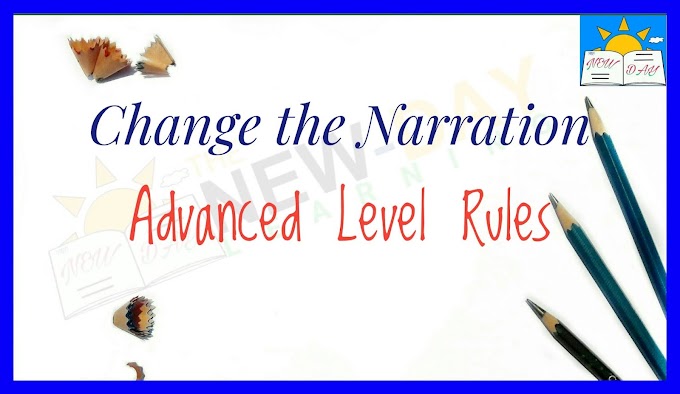You have words in your head but can not make a sentence with them? Tense and Time can solve your problems after you master this chapter.
For a non-English-speaking person, this is the most important topic of learning English grammar.
Many students, sometimes, in the examination hall, know the answers, but they can’t express them properly in papers only because they cannot make a proper sentence for less knowledge of Tense and Time.
On the other hand, we often need to share our thoughts and feelings in English on social media, on blog-post etc. and face the same problem. Tense and time tells us how to arrange words while writing or speaking English.
Tense
Tense is actually the time of an action. In a sentence, only the action verb (or main verb) indicates the time of the action by its difference forms.Tense can be divided into three categories.
- Past tense,
- Present tense,
- Future tense.
- Indefinite,
- Continuous or progressive,
- Perfect
- Perfect-continuous.
Future Tense
Future tense or future time includes any action the will be performed in the future. It also denotes a state that will exist.
• I shall go to school. (Action)
• I shall be a teacher. (State of being)
Now, you can divide it into four subcategories:
i) Future indefinite or simple present tense,
ii) Future continuous or Future progressive tense,
iii) Future perfect tense,
iv) Future perfect continuous tense.
Let's discuss one by one-
i) Future indefinite or simple future tense:
Future indefinite tense is used to express habitual action in future. A shall or will is used in the sentence followed the Simple (base) form of the main verb.“I shall play football” – in this sentence the shall play denotes it as a future tense.
Other examples-
We shall visit the park tomorrow.
You will understand it later.
They will go to school.
The syntax would be like-
Assertive-
| Affirmative | Negative |
|---|---|
| Subject + Shall/will + verb + object + others. E.g.- I shall write a letter. He will write a letter. | Subject + shall not/will not + verb (base form) + object + others. E.g.- I shall not write a letter. He will not write a letter. |
Interrogative-
| Affirmative | Negative |
|---|---|
| Shall/Will + subject + verb (base form) + object + others + ? E.g.- Shall I write a letter? Will he write a letter? | Shall not/Will not + subject + verb (base form) + object + others. E.g.- Shall not I write a letter? Will not he write a letter? |
Other examples-
| Assertive | Negative | Interrogative |
|---|---|---|
| We will follow the rules. | I shall not swim. | Shall we need permissions from the authority? |
| You will drive the car. | They will not come. | Will not they leave the hall? |
| She will design the website. | He will not disturb you. | Will it work properly? |
ii) Future Continuous or Future Progressive Tense:
The main verb of this tense expresses an action which will be going on.We can see the main verb used in this time have an ‘-ing’ as its suffix. A be verb is used before the action verb.
Ex-
I shall be playing football.
Assertive-
| Affirmative | Negative |
|---|---|
| Subject + shall/will + be (main verb+ing) + object + others. E.g.- I shall be writing a letter. He will be writing a letter. | simply put a not between the shall/ will and the be. Subject + shall/will + not + be (main verb+ing) + object + others. E.g.- I shall not be writing a letter. He will not be writing a letter. |
Interrogative-
| Affirmative | Negative |
|---|---|
| Use the shall/will at the beginning. Shall/Will + subject + be + (main verb+ing) + object + others + ? E.g.- Shall I be writing a letter? Will he be writing a letter? | Shall not/Will not + subject + be + (main verb +ing) + object + ? E.g.- Shall not I be writing a letter? Will not he be writing a letter? |
Other examples:
| Assertive | Negative | Interrogative |
|---|---|---|
| I shall be playing foot ball. | I shall not be going to the house. | Am I chasing you? |
| You will be going to do your own job. | You will not be wasting your time. | Are not you getting my point? |
| He is cooking. | She is not watching TV. | Is David not fighting with Dean? |
iii) Future Perfect Tense:
The main verb of this tense expresses an action that has just been performed but the impact of the action is yet to come.Like'
I shall have played football. In this sentence, the past participle form of the main verb is followed by a have verb (have/has).
Similarly,
We shall have finished our job before he comes.
He will have met her before she leaves.
Assertive:
Subject + shall/will + have + third form of the main verb + object + others.
Negative:
Use a not just after the shall/will.
Alexa shall not have entered the mall before her friend calls her.
Interrogative-
Use the shall/will at the beginning of the sentence.
Ex- Will you have enjoyed the drama before the magic show starts?
Will they have played hockey before he comes?
Shall/will + subject + have + third form of the main verb + object + others.
Other examples-
| Assertive | Negative | Interrogative |
|---|---|---|
| I shall have finished my homework. | We will have not used the formula. | Will you have seen her before she entered? |
| You will have complicated the simple matter. | They will have eaten the chicken. | Will she have opened the window? |
| He will have gone there. | Tony will have not blown the whistle. | Will she have submitted the project in time? |
iv) Future Perfect Continuous or Future Perfect Progressive Tense:
This tense carries the characteristics of both Future perfect and future continuous tense.As in "I shall have been trying for along time" , there is a have verb (have) followed by the third form of the verb ‘be’ (been). So it has the features of perfect tense. Again, the be, which has become been, itself is the be verb and so the main verb try took an -ing. So, we see, the sentence has features of a continuous tense too. Hence it is in future perfect continuous tense.
Read more: Rules to use Has, Have, Had.
Syntax-
Assertive:
Subject + shall/will + have + been + (verb+ing) + object + for/since + time + others.
Negative:
to make a negative of a present perfect progressive tense, put a not after have.
He will have not been living here for three months.
Interrogative:
The shall/will is placed at the beginning of the sentence.
Will he have been living there for three months?
Use a not after has to make it negative.
Other examples:
| Assertive | Negative | Interrogative |
|---|---|---|
| I shall have been reading for two hours. | He will have not been living here for three months. | Will you have been taking tea since last Monday? |
| She will have been working for the people since 2013. | They will have not been playing for two years. | Will John have not been talking since 5 o’clock? |
| We will have been requesting the land-lord since morning. | I will have been sleeping for five hours? | Will you have been cheating me for three years? |
Hope you understand all about Future Tense.
Thank you...
Thank you...





%20(1).webp)


%20(1).webp)
1 Comments
Its really very helpful ..
ReplyDeleteI understand what I want to learn
Thanks a lot🤞🤞🤞🤞
Leave a comment